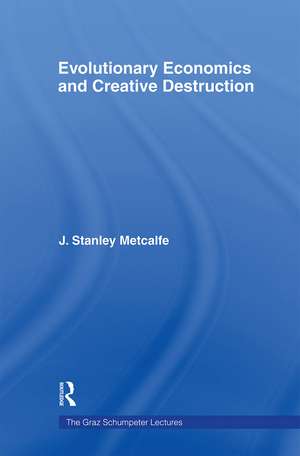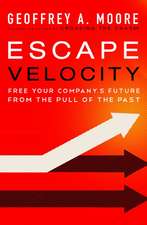Evolutionary Economics and Creative Destruction: The Graz Schumpeter Lectures
Editat de J. Stanley Metcalfeen Limba Engleză Paperback – 6 apr 2006
| Toate formatele și edițiile | Preț | Express |
|---|---|---|
| Paperback (1) | 480.62 lei 6-8 săpt. | |
| Taylor & Francis – 6 apr 2006 | 480.62 lei 6-8 săpt. | |
| Hardback (1) | 1270.22 lei 6-8 săpt. | |
| Taylor & Francis – 1998 | 1270.22 lei 6-8 săpt. |
Preț: 480.62 lei
Nou
Puncte Express: 721
Preț estimativ în valută:
91.97€ • 96.26$ • 76.55£
91.97€ • 96.26$ • 76.55£
Carte tipărită la comandă
Livrare economică 31 martie-14 aprilie
Preluare comenzi: 021 569.72.76
Specificații
ISBN-13: 9780415406482
ISBN-10: 041540648X
Pagini: 168
Dimensiuni: 156 x 234 x 9 mm
Greutate: 0.25 kg
Ediția:Revised
Editura: Taylor & Francis
Colecția Routledge
Seria The Graz Schumpeter Lectures
Locul publicării:Oxford, United Kingdom
ISBN-10: 041540648X
Pagini: 168
Dimensiuni: 156 x 234 x 9 mm
Greutate: 0.25 kg
Ediția:Revised
Editura: Taylor & Francis
Colecția Routledge
Seria The Graz Schumpeter Lectures
Locul publicării:Oxford, United Kingdom
Public țintă
PostgraduateCuprins
Figures, Foreword, Preface, Part I. The evolutionary economics of creative destruction, PROLOGUE: CHANGE WITHIN CHANGE, 1. ON RIVAL CONCEPTS OF COMPETITION AND THE EVOLUTIONARY CONNECTION, 2. FISHER’S PRINCIPLE AND THE PROCESS OF COMPETITION, 3. ECONOMIC VARIETY AND MODELS OF CHANGE, EPILOGUE: ON BEING DIFFERENT, ON BEING COMPETITIVE, Part II. Evolutionary approaches to technology policy, 4. SCIENCE POLICY AND TECHNOLOGY POLICY WHEN COMPETITION IS AN EVOLUTIONARY PROCESS, COMMENT, CONCLUDING COMMENT, Notes, Bibliography, Index
Descriere
The central theme of this book is competition treated as an evolutionary process in which the focus is upon economic change and not economic equilibrium.























